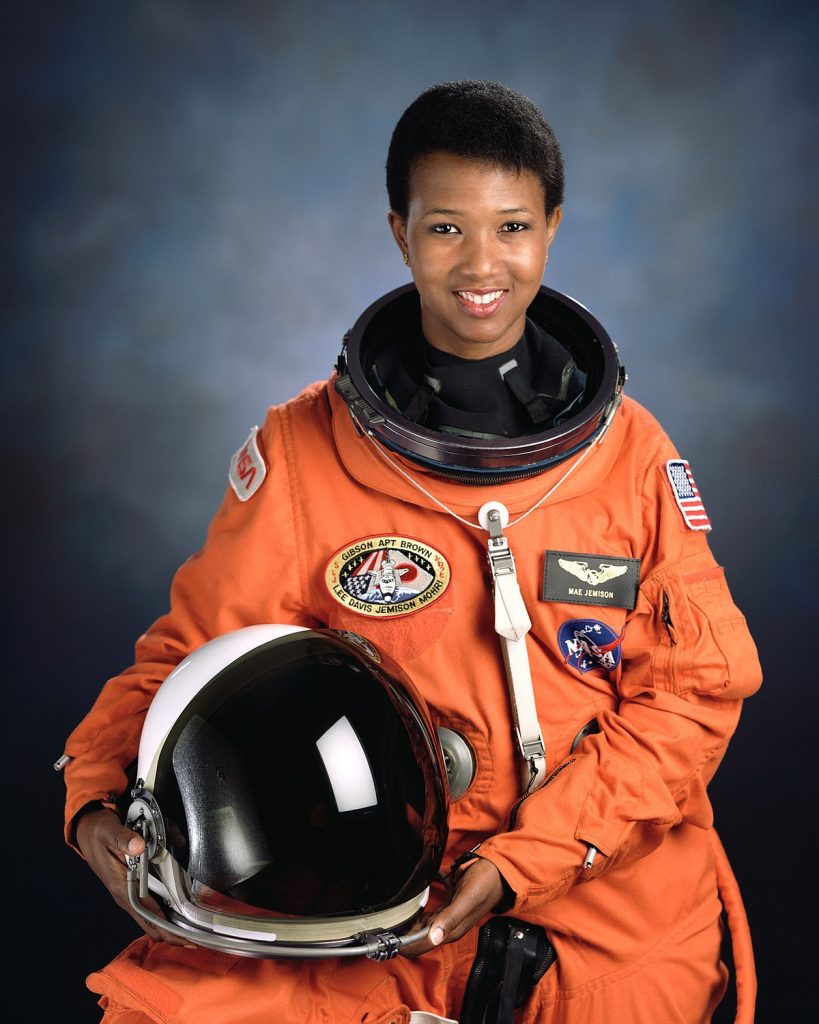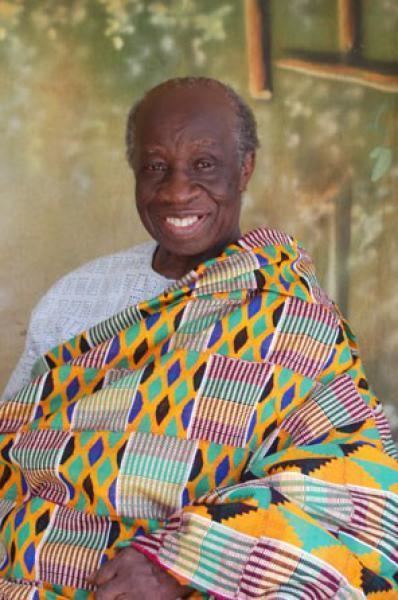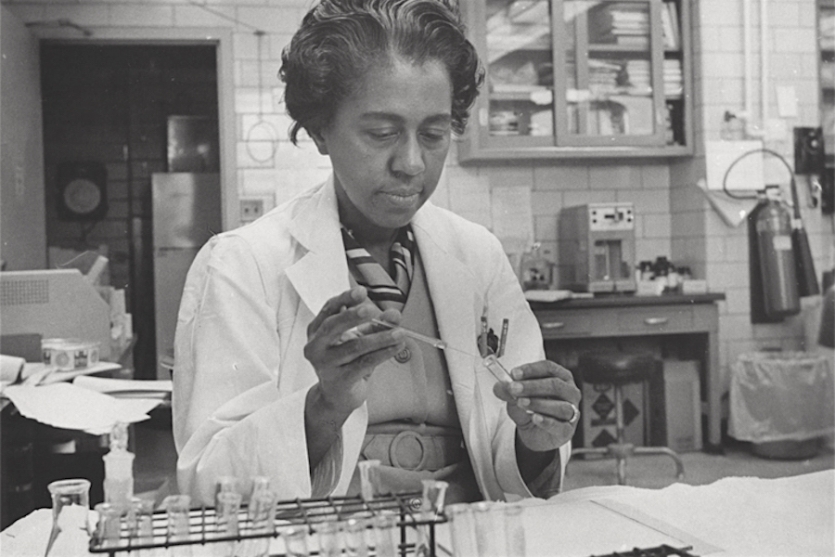I have always been fascinated about the history of science. Learning about the personalities who developed the scientific breakthroughs that we are enjoying now is not just an exhilarating pastime but a source of encouragement and hope.
However, I noticed the lack of celebrating black geniuses, lack of visibility of black scientists and in particular, Ghanaian scientists, in this discussion. Who are these black geniuses? Why have they not been celebrated? Why are their faces not splashed in our textbooks, in our journals and media articles? I would like to use this write-up to celebrate some of these great black minds and to bring some awareness to what they have achieved.
Let’s dive right in!
Mae Jemison

Mae Jemison (1956- ) is the first African American astronaut and the first African American woman in space, aboard the Endeavour in 1992. She trained as a Chemical engineer at Stanford University in 1977, where she served as the president of the Black Student Union.
She transitioned to the Cornell University Medical College where she earned a medical degree. Her desire for a broader experience led her to study in Cuba and Kenya in addition to working at a Cambodian refugee camp in Thailand. She also worked as the area Peace Corps medical officer for Sierra Leone and Liberia, where she served as a teacher and medical researcher.
Becoming an astronaut was a dream she had nurtured for years and in 1987 she was accepted to NASA’s elite astronaut training program. After her training she earned the title of science mission specialist making her responsible for carrying out crew-related scientific experiments on the space shuttle. She experimented on weightlessness and motion sickness, spending 190 hours in space.
She has earned several awards for her achievements and continues to be a trailblazer, a testament to the immense contributions women and minorities can bring to the table when given the opportunity.
Professor Kofi Allotey (1932-2017)

Professor Kofi Allotey (1932-2017) was a renowned mathematical physicist and a pioneer in several areas. He grew up in humble conditions in Saltpond, Ghana and later went on to earn his Masters and Doctorate from Princeton University. Interestingly, his love for science was developed as he spent countless hours in his father’s bookshop in Saltpond pouring over the biographies of reputable scientists, including some black geniuses.
As a physicist, he was known for the “Allotey Formalism” which emanated from his work using soft X-ray spectroscopy and earned him the UK Prince Philip Golden Award for his exploits in the field. Aside from his academic prowess, Prof. Allotey was also a pioneering leader. In later years, he became the Dean of the Faculty of Science at the Kwame Nkrumah University of Science and Technology (KNUST). He was also the founding director of the Computer Centre, as well as the Pro-Vice-Chancellor of the university.
His desire to serve and his love for science catapulted him to become the president of the Ghana Academy of Arts and Sciences as well as the president of the Ghana Institute of Physics. He was also the founding president of the African Physical Society. In addition, he played a pivotal role in the addition of Ghana to the International Union of Pure and Applied Physics making it one of first few African countries to gain membership. Prof. Allotey also used his collaborations with such international organizations to encourage physics education in developing African countries through workshops and conferences.
He served as a consultant for several international organizations such as UNESCO, UNIDO and IAEA. In 2004 he was the only African among 100 eminent scientists who were cited in the book “One hundred reasons to be a scientist”. Prof. Allotey is a role model for many budding scientists and black geniuses. His love for his work and his desire to see others exposed to the fields of physics and math can be seen throughout his career. This desire is summed up in a statement he made “The talent which many black youth use in achieving great heights in music, sports and the entertainment fields, can also be redirected successfully to the study of science”.
An artistic impression of his contributions to science was created by the artist Lawrinda Agebenowosi as part of the Evolution of Science Art Exhibition and has since been donated to the Ghana Academy of Arts and sciences.
Marie Daly (1921-2003)

Marie Daly (1921-2003) was the first female African American to receive a Doctorate in Chemistry in the United States. Coming from a modest background in Queens, New York, she worked her way through Queens College and landed work as a lab assistant at her former college. Enrolling in graduate school, she started her doctoral studies at Columbia University. Her research was centered on probing the chemicals involved in the digestion of food in the human body. The completion of her PhD etched her name in the annals of history as the first African American to earn a doctorate in chemistry.
Her fascination about the inner workings of the human body led her to focus on researching how proteins are made in the body, work funded by the American Cancer Society. She later returned to Columbia University to collaborate on a seminal research on the causes of heart attacks. Her work sheds light on the link between high cholesterol and clogged arteries. This groundbreaking work revealed a new understanding in the field of how various foods and diet can affect the health of the heart and circulatory system.
Her interest in social issues led her to champion efforts to promote the enrollment of students of color into medical schools and graduate science programs. She also established a scholarship for students from minority backgrounds who were interested in science education at Queens College. Marie Daly received several honors and was made a fellow of the American Association for the Advancement of Science.
